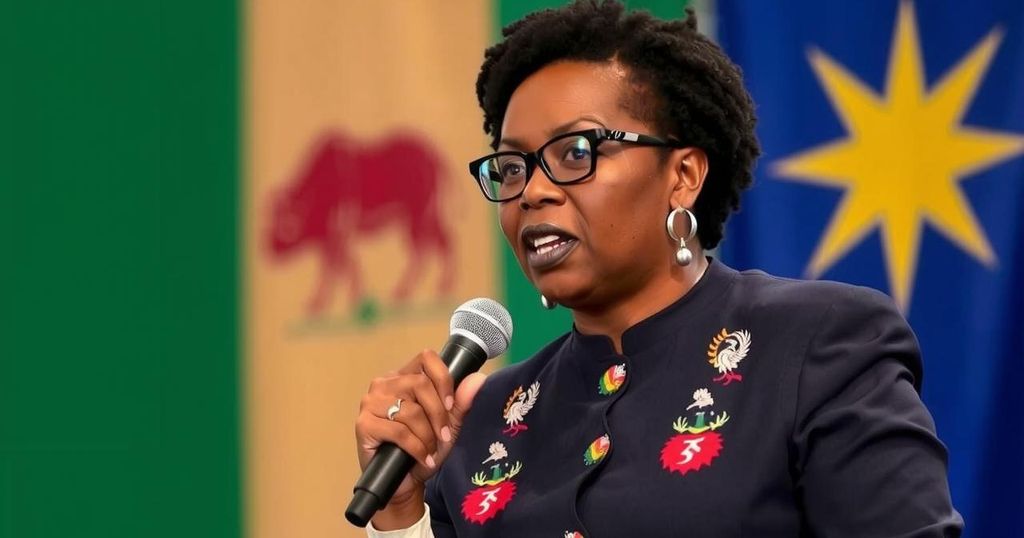Namibia’s IPC has rejected the recent election results due to alleged electoral malpractices. Candidate Panduleni Itula raised concerns about logistical issues affecting voting. Initial results show Netumbo Nandi-Ndaitwah of Swapo leading with 48% to Itula’s 30%. IPC plans to seek legal recourse and urges voters to report mismanagement. Swapo, in power since independence, faces declining popularity and potential for a runoff election.
Namibia’s primary opposition party, the Independent Patriots for Change (IPC), has announced their refusal to acknowledge the results from the recent general elections. Panduleni Itula, the IPC’s presidential candidate, articulated suspicions of significant electoral malpractices, noting that logistical issues had impeded voting, prompting extensions in several areas. The elections, which commenced on Wednesday, faced delays due to a lack of ballot papers and technical failures, leading to voting being conducted until Saturday.
Itula is competing against the South West Africa People’s Organisation (Swapo), the ruling party since Namibia’s independence in 1990, represented by its candidate Netumbo Nandi-Ndaitwah, who hopes to become the nation’s first female president. As it stands, initial results indicate Nandi-Ndaitwah at 48% of the votes compared to Itula’s 30%. To secure victory in the first round, a candidate must garner over 50% of the votes; otherwise, a runoff will be necessitated.
The IPC has taken a firm stance against the current election process, with Itula declaring their intention to pursue legal justice and urging voters who experienced issues to report them to the authorities. Despite these challenges, Swapo remains a dominant force in Namibian politics, with its previous election outcomes witnessing a decline in support and share of the votes. This reflects a broader trend among liberation movements across the region, facing increasing electoral scrutiny and resistance.
The political landscape in Namibia has long been dominated by the Swapo party, which has governed since the nation gained independence in 1990. However, recent years have seen a decline in its popularity, notably during the 2019 presidential election when their vote share dipped below 60% for the first time. This decline parallels experiences in other countries in the region, where once-dominant liberation movements have encountered electoral challenges and opposition successes. The Independent Patriots for Change, representing a growing discontent among the electorate, have emerged as a significant opposition force, advocating for transparency and electoral fairness. The recent elections highlighted logistical issues and alleged mismanagement by the electoral commission, which have fueled further dissent among opposition parties.
In conclusion, the IPC’s refusal to recognize the election results reflects broader discontent with the electoral process in Namibia, emphasizing allegations of mismanagement and logistical failures. The upcoming votes count and potential for a runoff, alongside Swapo’s diminishing voter support, indicate a pivotal moment in Namibia’s political history. The situation underscores the importance of electoral integrity and the role of opposition parties in advocating for reform in the face of established governance.
Original Source: www.bbc.com






